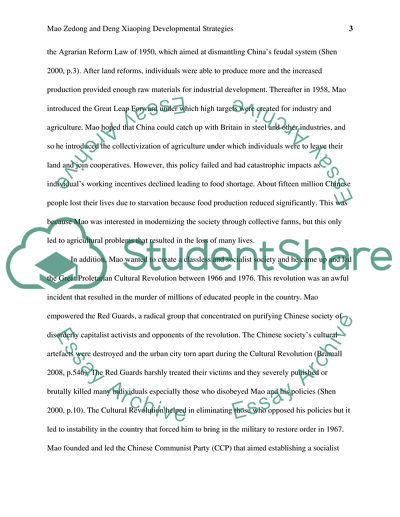Cite this document
(“Compare and contrast the development strategies of Mao Zedong and Deng Essay”, n.d.)
Compare and contrast the development strategies of Mao Zedong and Deng Essay. Retrieved from https://studentshare.org/macro-microeconomics/1670448-compare-and-contrast-the-development-strategies-of-mao-zedong-and-deng-xiaoping-examine-the-successes-and-failures-of-each-strategy
Compare and contrast the development strategies of Mao Zedong and Deng Essay. Retrieved from https://studentshare.org/macro-microeconomics/1670448-compare-and-contrast-the-development-strategies-of-mao-zedong-and-deng-xiaoping-examine-the-successes-and-failures-of-each-strategy
(Compare and Contrast the Development Strategies of Mao Zedong and Deng Essay)
Compare and Contrast the Development Strategies of Mao Zedong and Deng Essay. https://studentshare.org/macro-microeconomics/1670448-compare-and-contrast-the-development-strategies-of-mao-zedong-and-deng-xiaoping-examine-the-successes-and-failures-of-each-strategy.
Compare and Contrast the Development Strategies of Mao Zedong and Deng Essay. https://studentshare.org/macro-microeconomics/1670448-compare-and-contrast-the-development-strategies-of-mao-zedong-and-deng-xiaoping-examine-the-successes-and-failures-of-each-strategy.
“Compare and Contrast the Development Strategies of Mao Zedong and Deng Essay”, n.d. https://studentshare.org/macro-microeconomics/1670448-compare-and-contrast-the-development-strategies-of-mao-zedong-and-deng-xiaoping-examine-the-successes-and-failures-of-each-strategy.


